In this week’s review of Court Judgments, we look at Supreme Court’s judgment regarding felling of trees for a railways bridge project, SC’s judgement regarding change of date of birth of an employee, Allahabad High Court’s judgment that a woman who is complicit to a rape being also guilty, Kerala High Court’s observation to honour the wish of a major child regarding the custody, Delhi High Court’s observation regarding the non-provision for guardianship rights of a non-Indian citizen in respect of a disabled child and also its striking of the plea of WinZO who accused Google of trademark infringement.
Allahabad HC: A Woman facilitating act of rape with a group of people may be prosecuted for Gang rape.
A single-judge bench of Allahabad High Court, comprising Justice Shekhar Kumar Yadav has rejected the argument that a woman cannot be prosecuted for the alleged commission of the offence of gang rape.
In the case, Suneeta Pandey vs. State of U.P and another, the court observed that a woman cannot commit the offence of rape but if she facilitates the act of rape with a group of people then she may be prosecuted for Gang rape under Section 376D of IPC.
As per the case details, the incident of rape took place in June 2015, and the FIR was lodged by the informant against unknown persons in July 2015, under Sections 363 and 366 I.P.C. The allegation in the complaint was that someone has enticed the daughter (aged about 15 years) and took her with him.
As per the statement given by the victim, the applicant of the plea was involved in the alleged incident, however, was not named in the chargesheet. An application was filed to summon her, which was allowed by the court.
However, she moved the High Court to quash the summoning order as well as to stay further proceedings, on the ground that she being a woman, no offence under Section 376-D IPC is made out against her and she was wrongly summoned by the trial court.
The Court, considering the facts of the case observed that the argument that a woman cannot be prosecuted for gang rape is not correct as per the amended provisions of Section 375 to 373 IPC by Act 13 of 2013 of IPC, 1860.
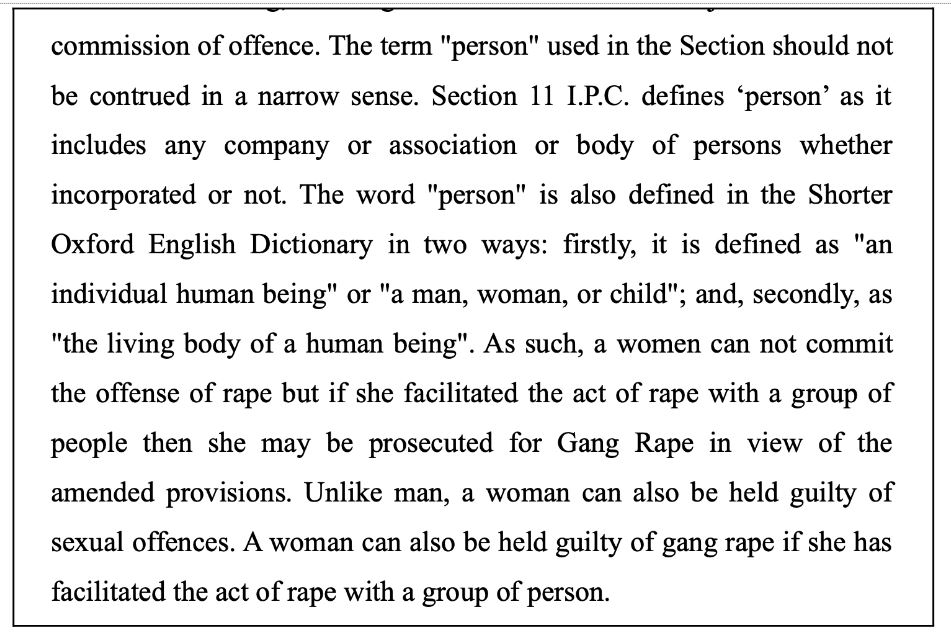
The Court further stated that under the scope of ‘Gang Rape’, to establish an offence under Section 376-D IPC, the prosecution has to provide evidence to indicate that one or more persons had acted together in the event, and if rape has been committed by even one, all the accused will be guilty, irrespective of the fact that victim had been raped by one or more of them.
The court upheld the principle of joint liability in case of common intention and prior effort to commit the action. Hence it proceeded to dismiss the plea.
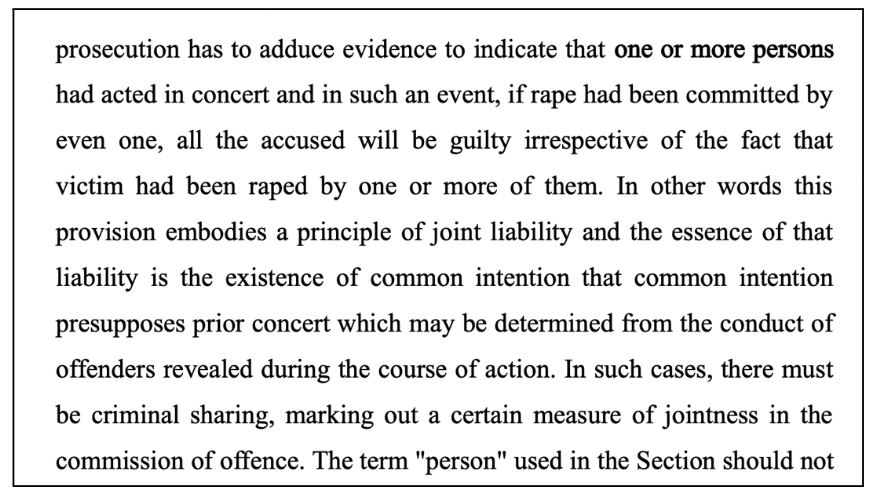
Delhi HC: Google’s warning for third-party APK files an industry practice, doesn’t infringe Trademark
As per the details of the case, WinZO filed the suit against Google after it was informed about the disclaimer by Google. Google has a disclaimer in place to caution users before they download WinZO’s APK file.
The warnings read,’This type of file may harm your device. Do you want to keep WinZO.apk anyway?’.
WinZO’s argument was that Google’s disclaimer/warning amounts to infringement of its trademarks and that it disparages the digital gaming services under the ‘WinZo’ or ‘WinZO Games’ marks.
Google submitted that other browsers also display such warnings when downloading a third-party APK format files or applications. It further stated that this is an industry practice, and the warning is a security feature to protect consumers from any possible malware.
The Court observed that since the defendant i.e., Google is not providing any goods or services using the trademarks in dispute, the usage cannot be considered as ‘use of trademark in the course of trade’.
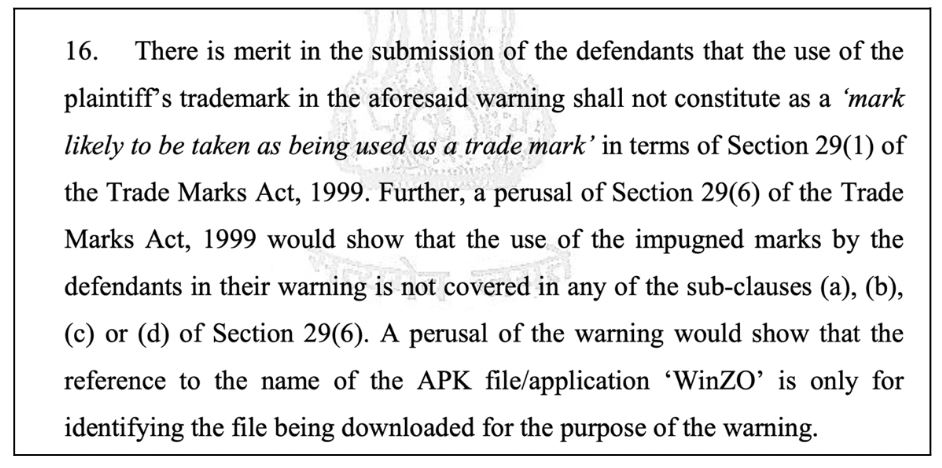
The court took cognizance of the fact that Google is not unique to put in place such warnings, as several other browsers also display such warnings when the users download third-party APK files. It also noted that Google is required to put in place such warnings in order to guard users against potential threats as per Information Technology (Intermediary Guidelines and Digital Media Ethics Code) Rules, 2021 and Information Technology (Reasonable Security Practices And Procedures And Sensitive Personal Data or Information) Rules, 2011.
The plea by WinZO was dismissed as the court did not find any merit in it.
Kerala HC: Parents’ demands can’t be given importance if child is grown up & able to take rational decision in personal matters.
A division bench of Kerala High Court comprising of Justice Anil K. Narendran and Justice P.G. Ajith Kumar observed that when a child is grown up and is capable of making rational decisions on his/her own, the court must not give too much importance to the demands of the parents’ battling the custody of the child.
This observation was made while hearing a challenge against the order of a family court that has denied custody to the father.
The grievance of the petitioner (father) was that the respondent was not permitting him to visit the child. The family court has earlier denied his submission for custody of the child. He approached the High Court challenging this order.
The counsel for the mother of the child submitted that the overnight custody of the child cannot be given to the father as the child is suffering from health-related issues that have affected his mobility.
The court highlighted that in custody battles, it is the welfare of the child that is of paramount importance and any decision on child custody needs to be solely based on this criterion.
The report submitted by the Secretary of the Taluk Legal Service Committee based on the direction of the court confirmed that the child does have issues with mobility due to obesity. The child often requires a wheelchair to move around, and special arrangements were made at his school to suit his needs. The report also stated that the mother visits the school every noon to help him with his daily tasks.
The court also had a personal interaction with the child, and he expressed his desire to stay with his mother.
The court took cognizance of the Supreme court’s observation for such cases, wherein it is the child who suffers the most in custody battles. It also noted that the child has a fundamental right to receive love form both parents.
However, it held the wish of the child as paramount and denied the custody application of the father. It also recognised the grievance of the father of not being allowed ample time to spend with the child and revised the visitation timings.
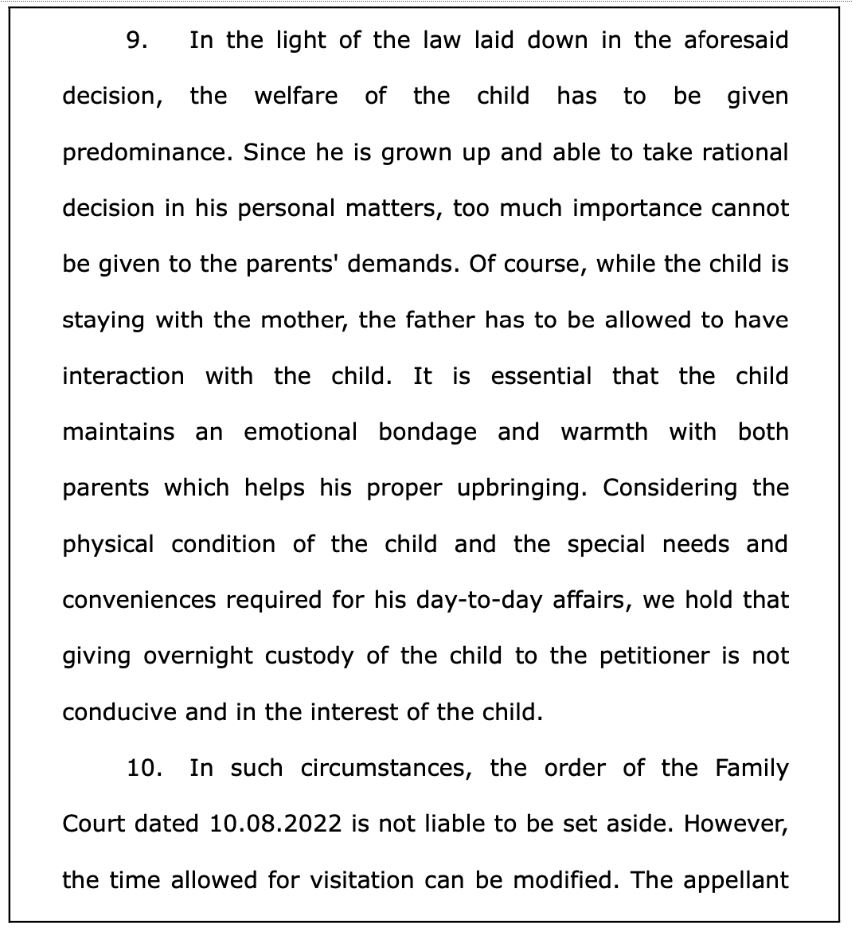
Delhi HC: Foreign national cannot claim vested or constitutional right to be appointed as guardian of person with disabilities.
In a case relating to the plea moved by a father whose adopted son has severe mental retardation, the Delhi High Court has observed that a foreign national cannot claim a vested or constitutional right to be appointed as guardian of a person with disabilities.
In the plea, the father has challenged the validity of Rule 17(1)(iii)(a) of the National Trust for Welfare of Persons with Autism, Cerebral Palsy, Mental Retardation and Multiple Disabilities Rules, 2001 and Regulation 12(i) of Board of Trust Regulations, 2012. Under these provisions, only Indian citizens are allowed to be guardians of a person.
In this case, the petitioner and his son are citizens of the USA but hold Overseas Citizenship of India cards. The petitioner and his wife were earlier looking after the needs of the child. However, since there is a breakdown of marital relations with his wife, the child is now being taken care of only by him. The petitioner submitted to the court that he was granted legal custody of his son and has been acting as his primary caregiver since the time of adoption. His assertion was that Section 14 of the National Trust for Welfare of Persons with Autism, Cerebral Palsy, Mental Retardation and Multiple Disabilities Act does not restrict a non-citizen from applying to be appointed as guardian of a person with disabilities.
Regarding this, the Court said that the Act lays down a broad and basic structure relating to assistive measures to be adopted for differently abled persons, including that of appointing a guardian. However, it leaves the details to be determined by Rules and Regulations that might be framed.
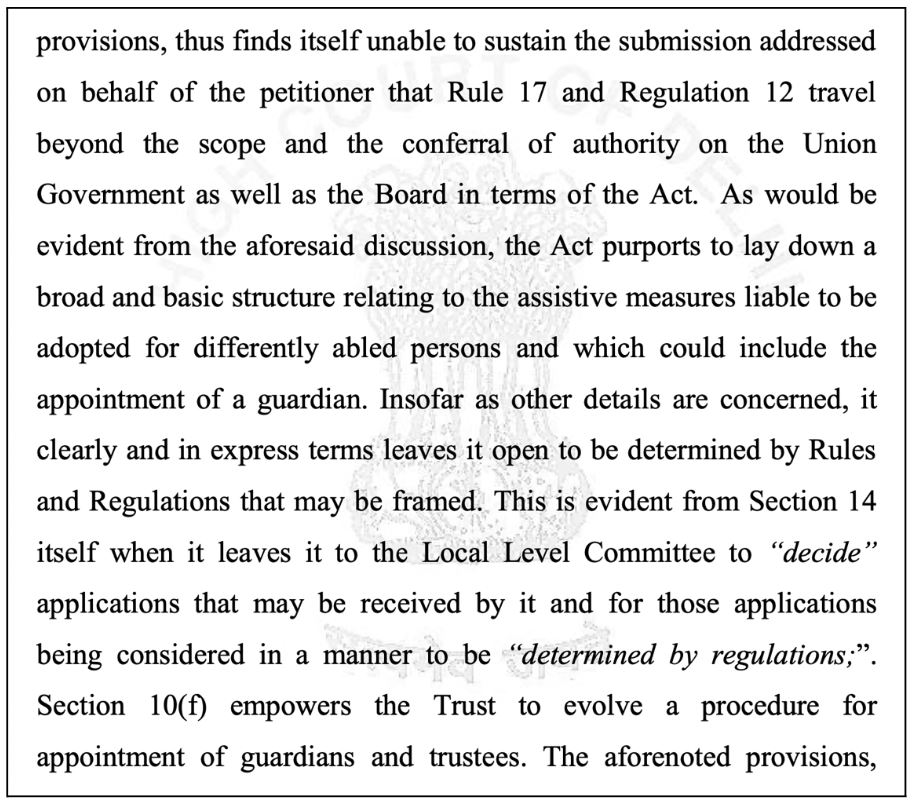
Section 14 of Rules & Regulations refers to the words “parent”, “relative” or “any person”, but does not specify that a non-citizen could also claim a right to be appointed as a guardian of a person with a disability.
It stated that the petitioner being an American citizen does not have the right to be appointed as a guardian, except when there is a special provision that grants him that right.
The court also referred to observations of the Supreme Court in Sahibzada Saiyed Muhammed Amirabbas Abbasi vs. State of M.B, wherein a person who migrated to West Pakistan in 1948 was denied being appointed as guardian of two minor children borne from his first marriage.
The court stated that it cannot find a suitable case in support of the petitioner, without the provision for the same in Rules & Regulations.
However, the court stated that it cannot close the proceedings in view of the situation of the child and allowed the petitioner to appoint someone as the statutory guardian of the son with special needs. Any such nomination will be duly examined and considered by the Local Level Committee.
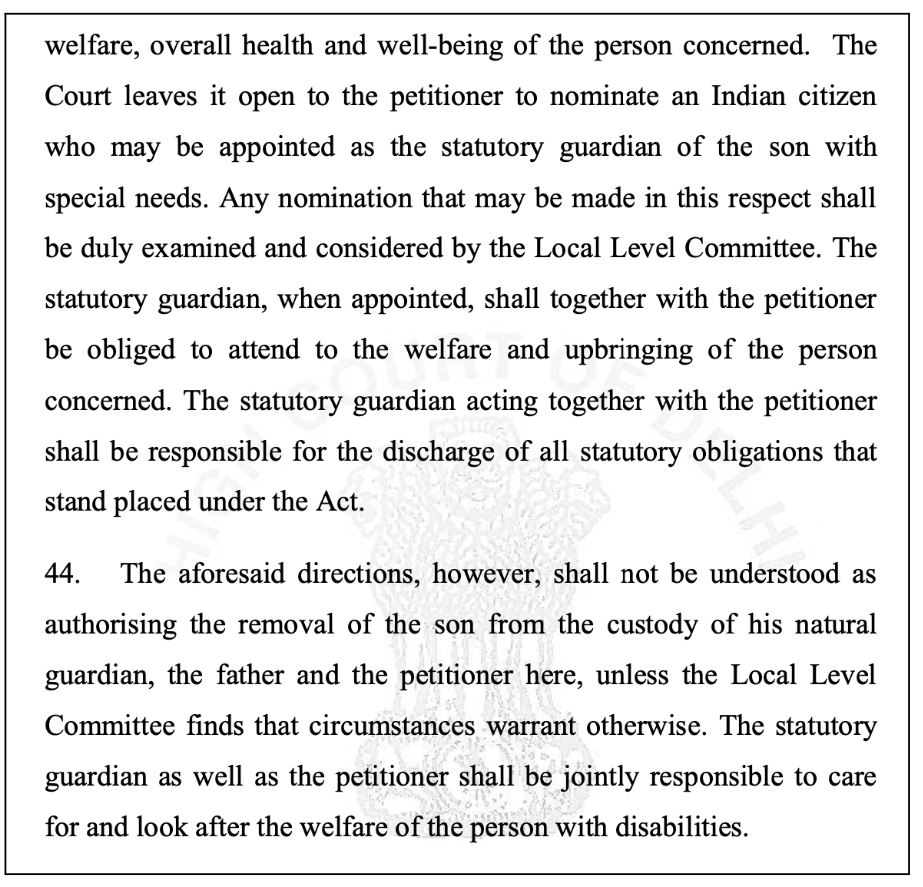
Supreme Court: Human Life equally important as protection of Environment, projects necessary for country’s economic development can’t be stalled.
In the case, Association for Protection of Democratic Rights vs. State of West Bengal, Supreme Court gave a go-ahead to the construction of railway overbridges in West Bengal as part of the Setu Bharatam project and observed that protection of human life is also equally important as protecting the environment.
This project was stayed since 2018, after Calcutta High Court’s order allowing the cutting down of 365 trees was challenged in the Supreme Court. An expert committee was constituted in 2020 by the Supreme Court to examine the matter.
West Bengal government has submitted that the project is necessary since close to 600 lives were lost in railway accidents. It was also submitted that the State has undertaken to plant five trees against one tree that would be felled, as a compensatory measure.
Meanwhile, the petitioner submitted that the project would require the felling of thousands of trees including heritage trees.
The Supreme Court bench took note of the committee’s observation that the bridge must be constructed to resolve the congestion at the railway crossing.

The bench dismissed the petition challenging the High Court order and noted that the felling of trees needs to be restricted to only 356 as per High Court’s order and the State government needs to be put on terms for compensatory afforestation.
Supreme Court: Employee can’t seek alteration of Date of birth at fag end of career
In a recent judgement, the Supreme Court reiterated that an employee cannot seek alteration of date of birth in the service records at the fag end of the career. The Supreme court bench was hearing a special leave petition filed by South Eastern Coalfields Ltd challenging a Bombay High court order which allowed the alteration of an employee’s date of birth.
The employee’s date of birth was correctly recorded at the time of his appointment. However, it was altered without his knowledge in 2001. After correspondence with the South Eastern Coalfields Ltd, a letter was issued in September 2011 which records the fact that the date of birth indicated in the service record was scored off.
In view of the fact that the service of the employee would end in a few days, the Supreme Court decided not to interfere with High Court’s order.
However, the court clarified the law that employees cannot wake up from their slumber after a long time and seek alteration of date of birth towards the fag end of their career.


